"I Felt the Bullet Pierce My Body, It Was Agony"
Rabbi Oren Asherov was critically injured in Lebanon and rescued miraculously. Eight months later, he experienced another salvation by avoiding a helicopter crash. "The world operates under divine providence," he reflects, "everything is planned and precise."
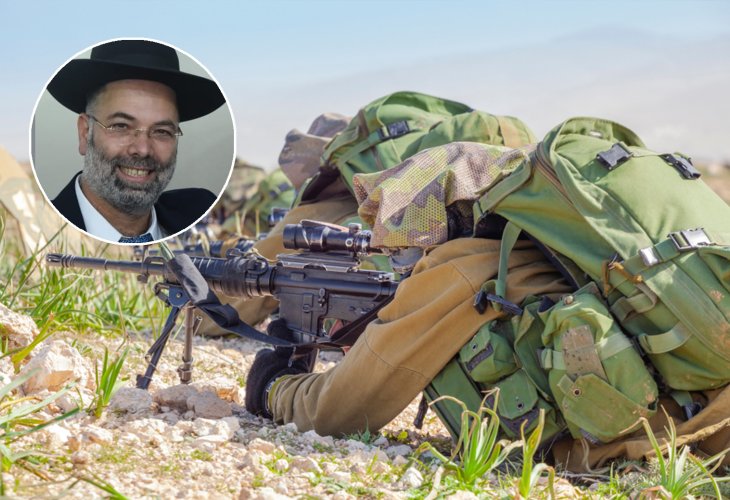 Rabbi Asherov, today (Illustration Photo: Shutterstock)
Rabbi Asherov, today (Illustration Photo: Shutterstock)Every year when Memorial Day arrives, Rabbi Oren Asherov recalls the days he served in the army as a combat soldier. He remembers and is moved. He remembers and thanks Hashem that he is still here with us, and for the fact that he was granted life.
It all started in 1994, when he was drafted into the IDF with one aspiration in mind—to be a fighter. "Initially, I was assigned to a regular intelligence unit," he notes. "I was the unit's cook, but from the very beginning, I aspired to be a combat soldier, and even though I wasn't initially allowed, I did everything to make it happen—I wrote letters, made calls, enlisted the help of people I knew, and eventually my request was granted. To my great joy, after eight months, I was sent to join military units and was assigned to the Nahal Brigade specializing in explosives."
Young Asherov was very satisfied, as this was his goal. "I went through basic training, after which I started serving in Lebanon," he continues his story. "The outpost we were assigned to was the Dla'at outpost, situated near one of the villages. For about four months, we were there—guarding all hours of the day and night, and during the night hours, going out on ambushes to thwart sabotage activities. We began experiencing a routine, until the difficult event that abruptly ended our service there."
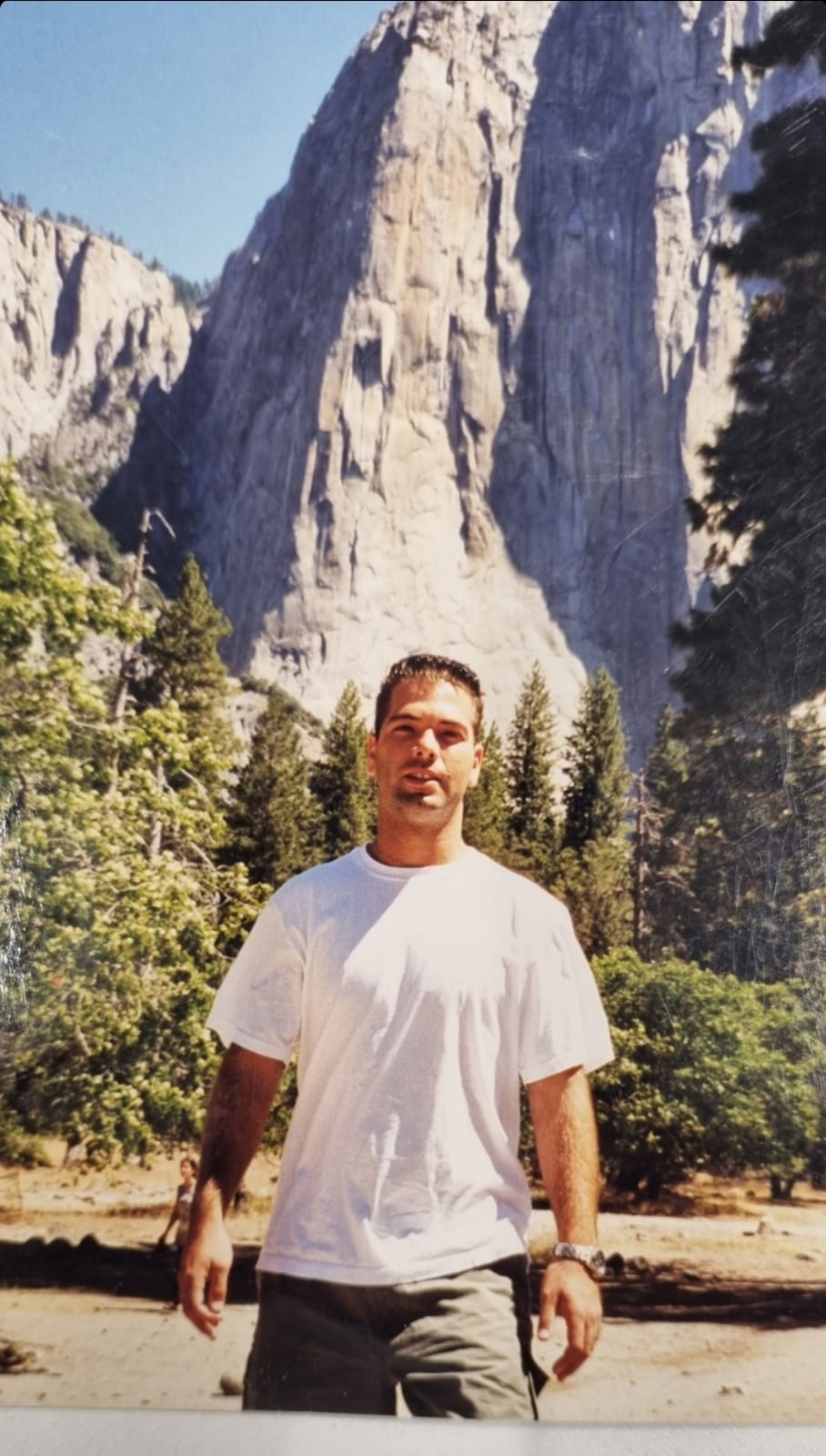
Bloody Ambush
Rabbi Asherov can never forget that day—14 Sivan 5756 (June 10, 1996). "Our unit received information from intelligence sources about Hezbollah terrorists approaching from the area. From that moment, everything was conducted according to familiar procedures—we were 12 soldiers, plus our commander. It was nighttime, complete darkness prevailed, and to avoid detection, we marched at large intervals from one another. Upon reaching the mountain slope, we set up an ambush. We all lay on the ground, aimed our weapons in the designated direction with loaded magazines, and waited for the command.
"We were very tired and desperately sought a few minutes of sleep, but of course, it was dangerous and impossible. So, we took turns napping—each sleeping a few minutes and then switching. Throughout the night, we waited for the terrorists, but nothing unusual happened. In the morning, even before dawn, our commander, Yishai Shechter, may his memory be a blessing, instructed us to dismantle the ambush and return to the base we came from. I was second to last in closing the force, and thus we marched one after the other. However, we then discovered a major oversight—it turned out that throughout the night, while we were in ambush, Hezbollah terrorists were observing us and set up their own ambush. They awaited us on the hill, knowing we would return at that exact spot, simply waiting for us.
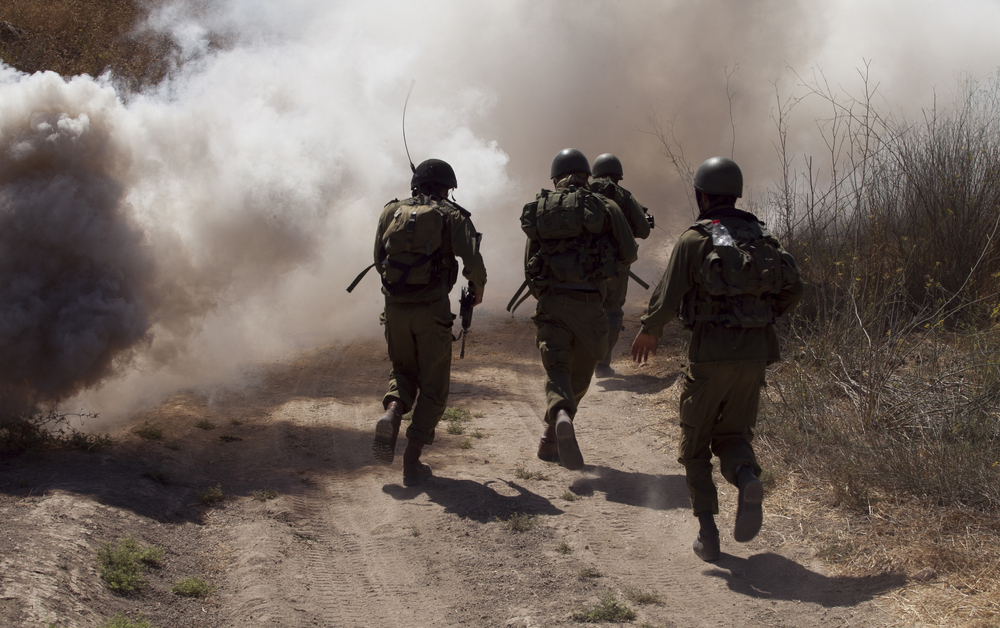 (Illustration Photo: Shutterstock)
(Illustration Photo: Shutterstock)"The moment we all marched towards the path, we suddenly heard a big volley of gunfire," he describes. "Instinctively, we all dropped to the ground. Grenades were thrown at us from all sides and charges were activated. Personally, I was shocked; I never imagined I would reach such a moment. True, there were exercises and combat preparation, but at no point did I picture myself actually in a battle, hearing the whistle of bullets, explosions almost tearing my eardrums, not knowing what to do—on one hand, logic says to hide under a bush or rock, but on the other, perhaps it's better to respond and shoot at the terrorists? The problem was, we didn't know where they were hiding."
The gunfire and bombardment continued. "At a certain point," Rabbi Asherov continues, "I began crawling towards a large rock, intending to hide behind it. On my way there, a bullet hit me. It was a severe injury; I felt the bullet pierce my entire body—it was like taking an axe, heating it in lava, and thrusting it into my back. It was sheer agony. I felt like my entire body was burning, I was hot, and blood was pouring out of my mouth. It was clear to me this was the place where I would meet my end."
Like in many stories, Rabbi Asherov began to see his life flash before his eyes. "I saw my entire life like a movie, since I was a child of three or four, glimpses of experiences I had, scenarios with family and friends at school...it all raced before my eyes in seconds. Yet, despite knowing I was going to die, I was still alive and conscious. I felt the blood continuing to pour from my mouth, and the taste of lead was strong in my throat."
And then something happened that changed the picture. "One of the terrorists approached me to ensure I was dead," he notes, "and meanwhile, one of my platoon's members, who had been injured in his hand but continued to function, transferred his weapon to the other hand and shot towards the terrorist. In doing so, he prevented him from reaching me. Meanwhile, someone else from the team picked me up and evacuated me from the site. This essentially was the stage where the incident ended."
Rabbi Asherov remembers the event's conclusion accompanied by helicopters and ambulances arriving from Israel. "I saw a lot of blood and difficult sights around me, heard screams and noise, didn't really understand where I was, but I was always conscious. What was later determined was that I was injured in my back, but the severity caused my lung to burst, requiring air drainage from my body. They began treating me on-site, then transported me by helicopter to Rambam Hospital. I was later told I was in critical condition that was deteriorating during the transport. Thus, they decided to stop at Ziv Hospital in Safed, where they fought for my life. For three days, I was ventilated and unconscious, only later regaining consciousness and gradually understanding what had truly transpired. Along with the realization that my life was spared, I also learned about the huge blow our platoon suffered—out of the 13 soldiers in that incident, five were killed—my officer and four others."
Officer Knocks on the Door
Rabbi Asherov pauses for a moment, and moves on to describe the events of that day at his parents' house in Raanana. "My parents knew I was serving in Lebanon," he shares, "and naturally, they were very anxious because they often heard about casualties and injuries in incidents during those days. That morning, a city officer and another representative came to my parents. They knocked on the door, and when my father opened it and saw them, he was sure the worst had happened. My mother fled to the room; she couldn't bear to hear the terrible news. The city officer hastened to reassure my father, telling him that I was alive but seriously wounded and explaining that he came to inform him and take him to the hospital. My parents weren't reassured; they both feared they were being gradually informed of my death, thinking it might be done in such a way."
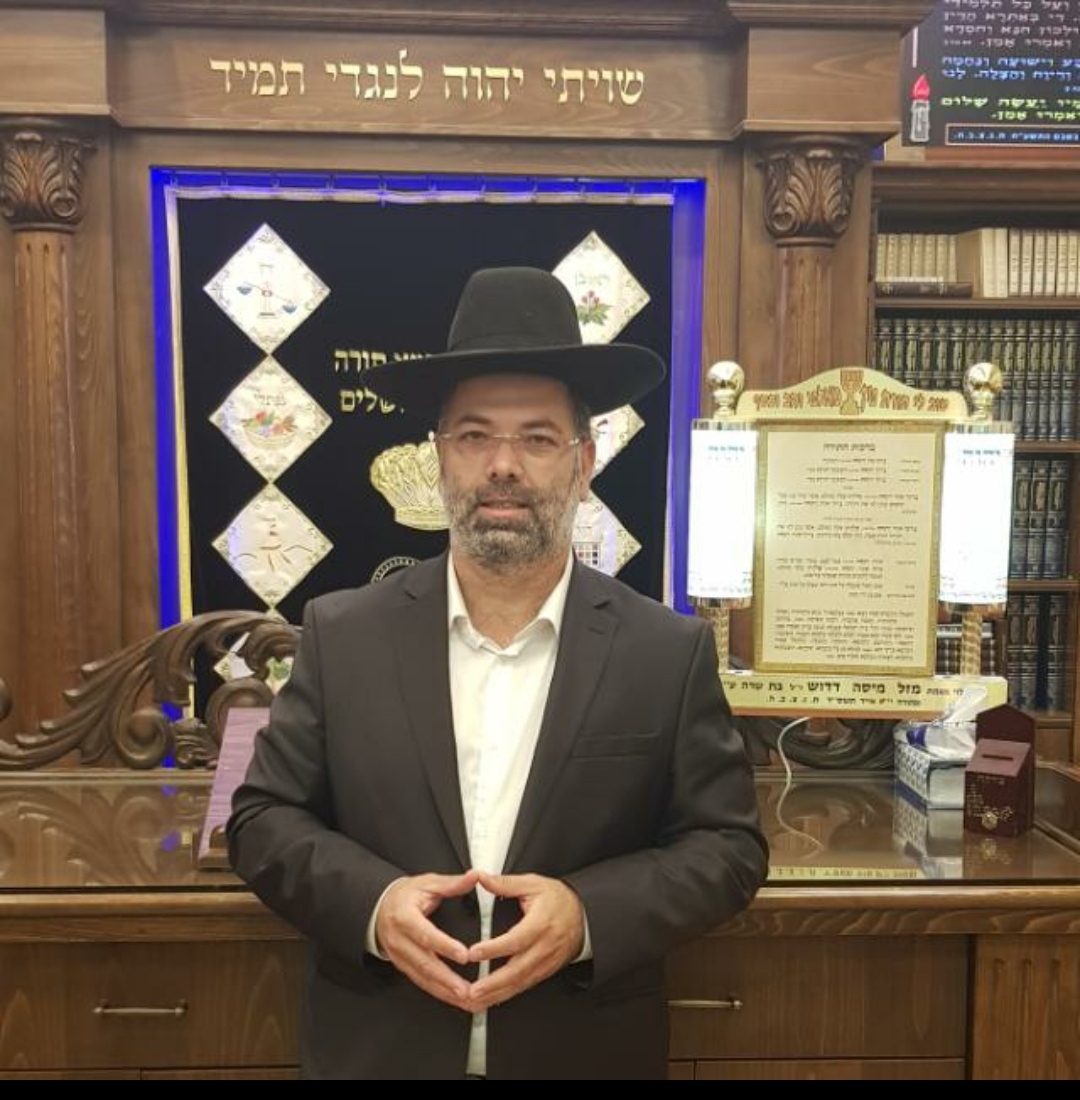
"They got into the vehicle," he adds, "and on the way, they picked up my brother and sister from school, then all traveled to Safed, arriving just as I was transferred to intensive care after surgery. The surgeon immediately informed them: 'He is alive, but unconscious and not breathing, we are trying to stabilize him.'"
Rabbi Asherov notes that this essentially started a new period in his life—a time of rehabilitation and hospitalizations, filled with much pain, but also advancement. "As time passed, I understood the magnitude of the miracle I experienced," he adds. "Not only was I extracted at the last moment, a split second before the terrorist shot me at point-blank range, but the bullet that penetrated my back was one centimeter away from my spine. I could have ended up paralyzed, God forbid, and it was a great miracle and salvation."
Today, as a man of faith, Rabbi Asherov says he knows to give thanks for everything that happened, but at the time, as a 20-year-old soldier from a secular family far from religion, he didn’t consider it, he simply continued his life.
Eight months later, he experienced another miracle of salvation that he couldn’t ignore. "The helicopter disaster," he says and grows silent. To this day, it is hard for him to speak about Israel’s greatest aviation disaster, where 72 soldiers were killed when helicopters on their way to Lebanon collided. "Among the soldiers on the helicopters that fell were all the members of my unit who survived the incident in which I was injured. Everyone who remained alive boarded the helicopter and perished. Only because of the injury I suffered in Lebanon, I could not continue fighting, therefore, I was spared from boarding the helicopter," he explains. "Suddenly I understood that if I hadn’t been seriously injured in Lebanon, I would surely have lost my life in the helicopter disaster. I began to see here a double miracle and salvation—Hashem ensured beforehand that I would be injured to save me from the helicopter disaster. It’s impossible to ignore that there’s a guiding hand here."
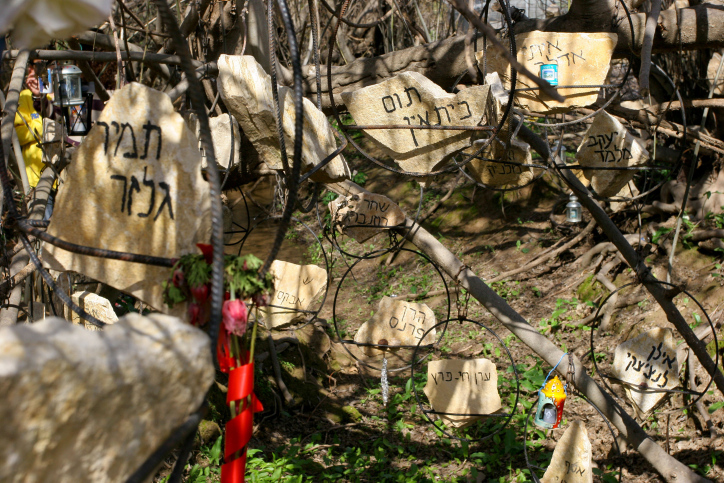 Helicopter disaster site (Photo: Chen Leopold / Flash 90)
Helicopter disaster site (Photo: Chen Leopold / Flash 90)A Mission for Life
As a young man, were you aware of the extent of the miracle?
"I understood that I had experienced a great miracle, but I didn’t do anything with it," he replies candidly. "I guess I was somewhat oblivious, also preoccupied with treatments and physical therapy. I had many back problems, which mainly occupied me. Later, I traveled abroad and also enrolled in computer engineering studies at Tel Aviv College and began working."
Rabbi Asherov experienced a connection to Judaism only after marrying his wife and the birth of their first daughter—Maayan. "That was the first period we started to explore Judaism in depth," he explains. "Together with my wife, I went through a journey towards Judaism that ended in a seminar, from which we emerged as different people. From the moment we discovered Judaism, our home grew stronger, and I personally began incorporating studies into my daily schedule, working in the mornings at Hertz rental company, and studying at a kollel in Raanana in the evenings."
Over time, Rabbi Asherov became aware that he had a talent for teaching Torah classes, and he began giving lessons in Raanana, enriching many. In the meantime, they had four more children, and the family continued to grow.
"Six years ago," he recounts, "we received an offer to move to Kfar Saba for outreach purposes. It was a secular neighborhood with a synagogue called ‘Menuchat Shalom,’ which lacked a rabbi, and I was appointed to the role. Since then, I’ve been there, delivering Torah lessons and striving to contribute and offer as much as possible to the community. I feel that the people here were really waiting for someone to come, guide them, and strengthen them. With Hashem's help, I was privileged to find the right place and engage in enriching the community."
"When I look today at all the events I’ve been through," he adds, "I see how Hashem guided me throughout, and with His merciful hand, protected and led me all the way. My life is accompanied by divine providence, and every Memorial Day when I recall the events I experienced, I cannot help but be moved—there was a plan upon a plan here, all under the divine guidance of a Father in heaven. It’s impossible to ignore this. It’s so clear and transparent. I was a soldier in the army, and today I am a soldier in the army of the Creator of the world."

